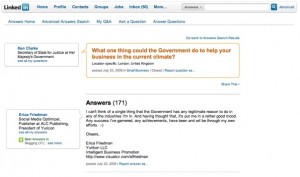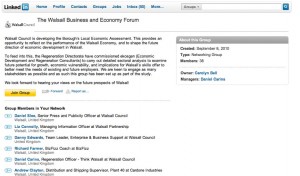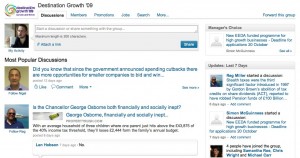In my recent soul-searching post on where digital engagement is heading next, I mentioned that social media needs to embed itself back into digital work as a whole.
This is in part for protection – if ‘playing around with Facebook’ is a separate team or activity, it’s ripe for being cut, frankly (I worry for those few social media officers out there).
But it is also for the reason that an integrated approach to digital, including traditional web stuff, plus email, plus the interactive bits, probably makes sense. Of course, there is then the next stage of integration, which would be into other, non-digital comms and engagement activity – but I’m even less of an expert in that sort of thing so won’t talk too much about it.
A direction that this line of thinking took me in the other day was towards forums: pretty traditional bulletin board style sites that feel like they have been around forever.

In case you were wondering, forums are online discussion sites, where threaded conversations are organised into topics. Users can quote and reply to one another in a fairly linear way.They’re most un-social media like, for a number of reasons, some techie, some not.
For example, the technology is not always the most sophisticated, and it doesn’t tend to integrate too well with your other online profiles. Also, unless the people running the forum manages it really tightly, they can quickly degenerate into bickering bear-pits where nothing constructive is ever discussed. It’s also pretty hard to keep conversations on track and to make it easy for people to find information – topics are often repeats of those already discussed, which can frustrate everyone involved.
But it strikes me that despite Facebook’s huge numbers, and the growth of Twitter and blogging (all great things, by the way, and I am not suggesting anybody stops being involved with them!), an awful lot of mass engagement online is with the forums.
Think about some of the big online communities, and what technology drives them. There are the communities of interest, like NetMums (and MumsNet), Money Saving Expert, the Student Room. Also the communities of place, like the Sheffield forum, the East Dulwich forum – and smaller ones like Around Ampthill. The number of active members and posts on these sites can be frightening.

Support communities around software or services are almost always traditional forums, and despite some of the drawbacks of the medium, they thrive, and are full of great content, interesting conversations and detailed information.
Also, those spaces which include forum-type elements are pretty much always the most popular. Think about the Ning sites you belong to, or the Communities of Practice. Try as you like to get people to blog, or contribute to wikis, it’s the forums they always gravitate to first.
There are also some other online communities, which have a rich culture and an insanely dedicated following – but where government folk should generally fear to tread, like 4chan and b3ta for instance (I’ve linked to their Wikipedia entries rather than the actual sites to save your jobs). These are fascinating examples of genuine communities of quite remarkable levels of online influence – and they have pretty simple bulletin board style technology at their heart.
What’s interesting especially about 4chan is the fact that it is anonymous – the very opposite of what social networking online tends to be about. I’m always happy to lecture people on the need to use real names in online spaces to build trust – and I think it is true as a general rule – but sites like 4chan, chaotic and anarchic as they are – seem to succeed without the need for this.
So what’s the point of writing about all this?

Well, when thinking digital engagement, don’t just think social media or social networking. People coming together online has been happening for a very long time and it is vital to focus some of your attention on some of the older-school communities, as well as Facebook groups and Twitter streams.
Second, the best thing about these forums is that they already exist – building them can be very time consuming. It’s a great example of the use of cognitive surplus, with a bit of big society thrown in for good measure, that volunteers are running these spaces (ok, some make money, but not many). Approach those behind these forums and see if there is a way you can work together – they often have a loyal band of motivated and enthusiastic people who care about stuff ready and waiting to contribute.
So are forums the cutting edge of technology? Not really. But they aren’t going away any time soon, and right now they are, I think, one of the most dependable sources of interested, web-savvy people to get involved in digital campaigns. Don’t ignore them.

 Since moving house back in October, my local government district is
Since moving house back in October, my local government district is 






